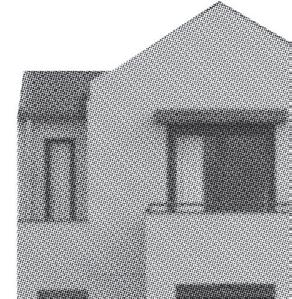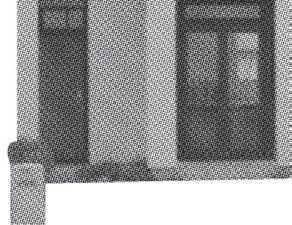
8 minute read
Survey results: What Kiwis really think about house prices

W H A T K I W I S R E A L L Y T H I N K A B O U T H O U S E P R I C E S
Advertisement
New survey by OneRoof and data insights firm Kantar shows housing affordability is a pressing concern for the majority of Kiwis, with two out of five wanting the Government to bring prices down to pre-Covid levels.
neRoof commissioned data insights firm Kantar to poll Kiwis on their a itudes to house prices in New Zealand. Five questions were asked, covering how Kiwis perceive house prices right now, what they think about the future of the market and whether or not they think the Government should try to bring down prices. The survey of just over 1,000 Kiwis around the country was run in October.
According to the results, the majority of New Zealanders perceive current house prices to be too high. This perception is particularly strong among those living in the major cities – Auckland and Wellington - and indicatively among the younger demographic. Further to this, most New Zealanders are not optimistic about the future of the housing market, believing affordability will worsen in the next two to three years.
More than two-thirds of New Zealanders currently own a house in New Zealand, although this is skewed towards those aged 40-plus and those living outside of Auckland. Among homeowners, confidence in the ability to purchase another house at the current prices if their current house is sold is divided. Around a quarter currently sit at each end of the confidence scale and the other half of homeowners sit in the middle.
New Zealanders place responsibility for increased house prices on property investors and overseas buyers, although both the current Labour Government and previous National Government are also seen as responsible.
And just over two in five New Zealanders agree that the Government should forcibly reduce house prices to preCovid levels. Strong agreement skews higher among nonhomeowners, younger Kiwis and those with a household annual income of $50,000$100,000.
THE RESULTS Just over 80% of New Zealanders perceive house prices to be too high, with age and region playing a significant role.
Respondents aged 60-plus are significantly more likely to think house prices are “about right” (16%), while those aged 18-39 years are indicatively more likely to say they are “much too high” (67%).
Those living in Auckland and Wellington are significantly more likely to perceive house prices being much too high (68% and 77% respectively), while those in Canterbury are significantly less
DO YOU THINK likely to feel this way (50%). Those living in other HOUSE PRICES North Island regions perceive prices to be slightly IN YOUR AREA too high (26%).
ARE… The majority of respondents are not optimistic that the housing market will become more affordable in the next two to three MUCH years, with just over TOO LOW two-thirds of New 1% Zealanders saying affordability will DON’T worsen.
KNOW Those aged 60-plus 4% are significantly more likely to perceive the housing market will slightly improve (19%) over the next two to three years and less likely to say it will significantly worsen (26%). Forty per cent of respondents with a household annual income of $50,000-$100,000 think affordability will significantly worsen. There is no significant gender or regional trends within the results to this question.
Among current homeowners, confidence in being able to purchase another house SIGNIFICANTLY at the current prices is divided, with half IMPROVE 1% currently sitting in the middle.
Just over two-thirds of people in New Zealand currently own a house in the country. This is largely skewed towards those who are aged 40plus, have high personal and household annual incomes ($100,000 and above) and those living in the North Island (excluding Auckland and Wellington). Homeowners are significantly less likely to be living in Auckland. Those who say they are very confident of being able to purchase another house at current prices skew towards males, those living in Canterbury SLIGHTLY and those who have high personal and WORSEN SIGNIFICANTLY household annual income ($100,000 and above).
33% WORSEN 35% Most New Zealanders place the responsibility for increased house prices on property investors and overseas buyers.
The younger demographic (18-29) are significantly more likely to place responsibility on property investors (68%) and the current Labour DO YOU THINK THE Government (43%), similarly those aged 30-39 AFFORDABILITY (43%). Those aged 40-49 are significantly less OF HOUSES IN THE likely to say the Labour Government (28%) HOUSING MARKET while those aged 60-plus are less likely to say the OVER THE NEXT 2-3 previous National government (18%). YEARS WILL… Men are significantly more likely to place the responsibility on both the current Government (43%) and previous National government (28%) , and also first home buyers (6%). Aucklanders are significantly more likely to place the responsibility on banks (26%).
STAY THE SAME 15% SLIGHTLY IMPROVE 12%
SLIGHTLY TOO LOW 2% MUCH TOO HIGH 62% DON’T KNOW 4%
ABOUT RIGHT 11% SLIGHTLY TOO HIGH 20%
VERY CONFIDENT 26%
IF YOU WERE TO SELL YOUR HOME NOW, HOW CONFIDENT ARE YOU THAT YOU WOULD BE ABLE TO PURCHASE ANOTHER HOUSE AT THE CURRENT PRICES?
UNCERTAIN 50%
DO YOU CURRENTLY OWN A HOUSE IN NEW ZEALAND?
YES 69% NOT CONFIDENT AT ALL 24%
NO 31% STRONGLY AGREE 21%
SLIGHTLY AGREE 21% HOW MUCH DO YOU AGREE OR DISAGREE THAT THE GOVERNMENT SHOULD FORCIBLY BRING HOUSE PRICES DOWN TO PRE-COVID LEVELS?
STRONGLY DISAGREE 18%
SLIGHTLY DISAGREE 13%
NEITHER AGREE NOR DISAGREE 27%
More New Zealanders agree that the Government should try to forcibly bring house prices down to pre-Covid levels. Agreement skews towards younger New Zealanders, those with low to average annual household income and nonhomeowners.
New Zealanders aged 18-39 are significantly more likely to strongly agree (29%) while those aged 50plus are less likely to strongly agree (15%).
Males lean towards strongly disagreeing (23%).
New Zealanders with a household annual income of $50,000-$100,000 are more likely to strongly agree (26%), while high personal and household income earners ($100,000) are likely to strongly disagree (33% and 26% respectively).
Homeowners are significantly more likely to disagree (strongly and slightly disagree - 39%) while those who don’t currently own a house are significantly more likely to strongly agree (38%)
THE AVERAGE HOUSE PRICE IN NEW ZEALAND HAS DOUBLED TO $1M IN THE LAST SEVEN YEARS. WHO DO YOU THINK IS RESPONSIBLE FOR THAT INCREASE?
NO ONE 4%
OTHER 12%
FIRST HOME BUYERS 4%
BANKS 22%
Notes about the poll:
The OneRoof–Kantar Housing Survey 2021 was taken between Wednesday, October 20, and Wednesday, October 27, using the ConsumerLink Flybuys panel in New Zealand, which has more than 100,000 active members. Sampling was nationally representative, and then was postweighted by age, gender and region to ensure it matched the underlying population as published by Statistics New Zealand. Only those aged 18-plus were included. The sample size was n=1,001 and the maximum margin of error for total sample (at 95% confidence level) was plus or minus 3.1%.
THE NATIONAL GOVERNMENT 24% THE CURRENT LABOUR GOVERNMENT 35% OVERSEAS BUYERS 52% PROPERTY INVESTORS 62% OTHER MENTIONS INCLUDE: HOUSING SHORTAGE; IMPACT OF COVID-19; INCREASED DEMAND
TONY ALEXAN DER We want house prices to drop – but less so if it impacts our retirement
JUST OVER a month ago the OneRoof-Kantar Housing Survey 2021 was conducted, looking at how people feel about house prices in New Zealand. The survey has made the effort to get the demographic distribution of responses to match the make-up of New Zealand’s population, so we can be reasonably confident that the 1001 responses reflect how Kiwis feel overall.
In that regard, it is surprising that 52 per cent of people still say overseas buyers are responsible for house prices doubling in the past seven years. There has been a ban on almost all foreign buying since late 2018 and only 40 per cent of the price-doubling since 2014 occurred before the ban. Clearly, memories of the strong debate back then and perhaps the misplaced accusation of “Chinese-sounding names” still linger.
A larger 62 per cent of people blame investors for house prices doubling, and that seems accurate from the analysis I do. Falling interest rates, especially since 2015, have encouraged investors into debt-funded assets such as housing. This perhaps has been the key characteristic of our housing market for three decades. We Kiwis have transformed our homes and the homes of others into portfolio assets used for building our personal wealth and funding our retirements – with encouragement from governments to do so.
Now, with so many people reliant on house prices staying up to maintain wealth and ensure we are comfortable in our old age, falling house prices are unlikely to be positively greeted by most people. Yet in the OneRoof-Kantar survey, 42 per cent of the 1,001 respondents feel the Government should force house prices back down to pre-Covid levels. That would involve reversing the 39 per cent rise in prices since March 2020.
But perhaps the detail of responses to this question provides an explanation. Some 62 per cent of those who do not own a home want the Government to act, while a still high 32 per cent of homeowners would support some intervention. That high 32 per cent for current homeowners might be driven by concerns that affordability is going to get worse and purchase options are shrinking for their offspring.
A high 70 per cent of respondents expect affordability to worsen over the next two to three years. This can be broken down further, with 78 per cent of those not owning a home expecting deterioration and 63 per cent of those currently owning a home feeling this way. This means even though 82 per cent of respondents feel house prices are fundamentally too high, there is li le optimism that this situation will change.
Perhaps one result worth noting at the regional level is that while 42 per cent of people nationwide feel the Government should act to get prices down, the proportions in Auckland and Wellington are 49 per cent and 53 per cent respectively. Only 30 per cent of Cantabrians, however, would favour action to deliberately lower prices. And in Wellington, 94 per cent of people feel house prices are too high compared with “just” 80 per cent in Auckland and 77 per cent in Canterbury.








